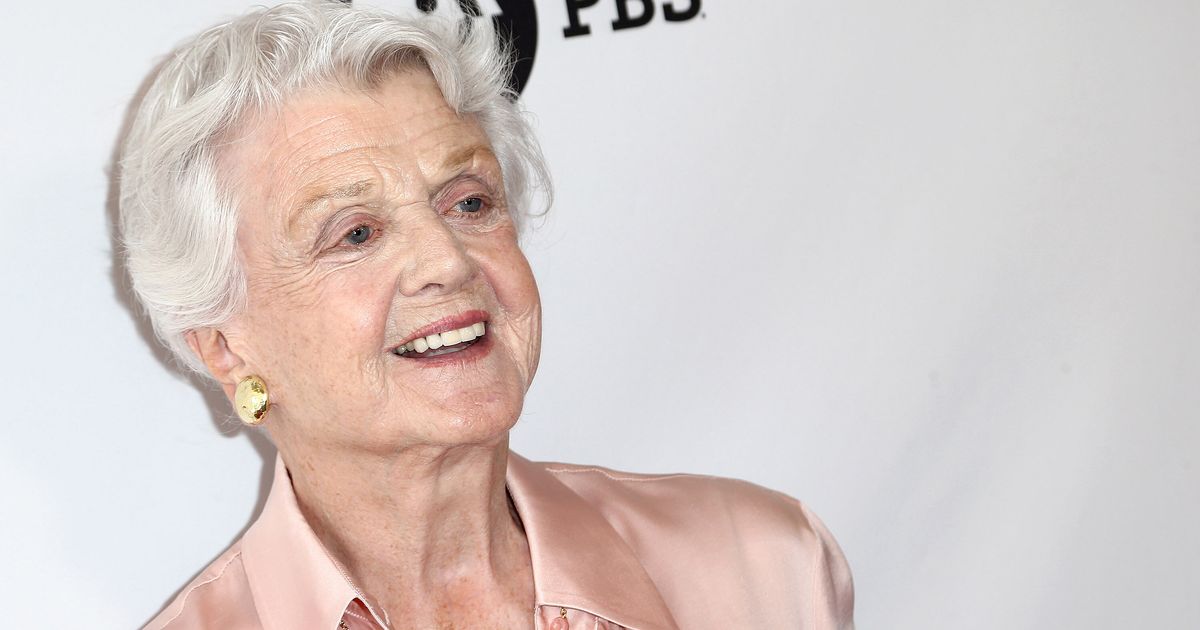According to a statement issued by her family, Angela Lansbury, the renowned actor who spent seven decades in film, television, and theater, passed away on Tuesday. She had 96 years old.
“The children of Dame Angela Lansbury are sad to announce that their mother died peacefully in her sleep at home in Los Angeles at 1:30 AM today, Tuesday, October 11, 2022, just five days shy of her 97th birthday,” her family said in a statement obtained by NBC News and People.
Lansbury became something of a feminist icon thanks to her leading role as amateur detective Jessica Fletcher in the enduring series “Murder, She Wrote.” Thanks to her consistent performances in musical theater, she also had a sizable queer fan base.
Lansbury was the daughter of socialist politician Edgar Lansbury and actress Moyna Macgill. She was born in London on October 16, 1925. When she was 9 years old, her father passed away from stomach cancer, and in 1940, her family emigrated to the United States in order to avoid the Nazi blitz. At a party her mother hosted when she was about 17, she got to know the screenwriter John Van Druten. In the 1944 psychological thriller “Gaslight,” Van Druten suggested her for the part of a cunning maid. At the age of 20, Lansbury received an Oscar nomination for the role, which was her first time acting in a movie. At the height of the studio system in Hollywood, Lansbury quickly agreed to a seven-year deal with MGM. She started out making $500 per week, or about $7,300 in today’s money.
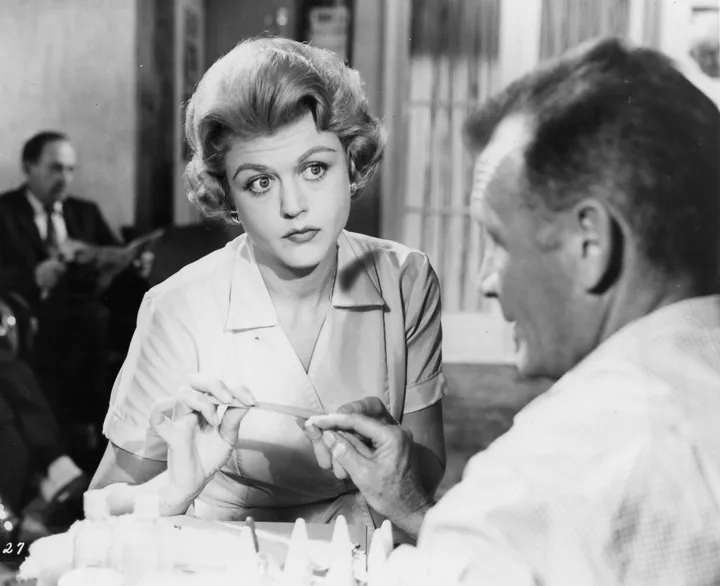
However, Lansbury’s path to true stardom didn’t begin to take shape with her first nomination for an Oscar. She frequently came in second place to actresses like Elizabeth Taylor (1944’s “National Velvet”), Judy Garland (1946’s “The Harvey Girls”), Deborah Kerr (1947’s “If Winter Comes”), Katharine Hepburn (1948’s “State of the Union”), Ethel Barrymore (1951’s “Kind Lady”), and Anne Baxter (1960’s “Season of Passion”). MGM tended to cast her in supporting roles.
“They didn’t know what to do with me,” Lansbury said of MGM in a 2015 interview with The Telegraph. “They didn’t make the sort of movies that I could possibly have shone in, so they used me as a utility. I played a lot of older women.”
Nevertheless, Lansbury received favorable reviews right away. Her early performances were deemed “commendable” and “fetching” by The New York Times. Just one year after receiving her first, Lansbury received her second Oscar nomination for her role as Sibyl Vane in the 1945 adaptation of “The Picture of Dorian Gray.”
Lansbury rose to prominence as the 1960s snuck up on us and the studio system collapsed. A star was finally born. Her film roles began to get more substantial—at least some of them did. Both “All Falls Down” and “The Manchurian Candidate” in 1962 starred Lansbury as scheming mothers. She received a prize from the National Board of Review for all of her performances, and the latter led to her third Oscar nomination and first Golden Globe victory.
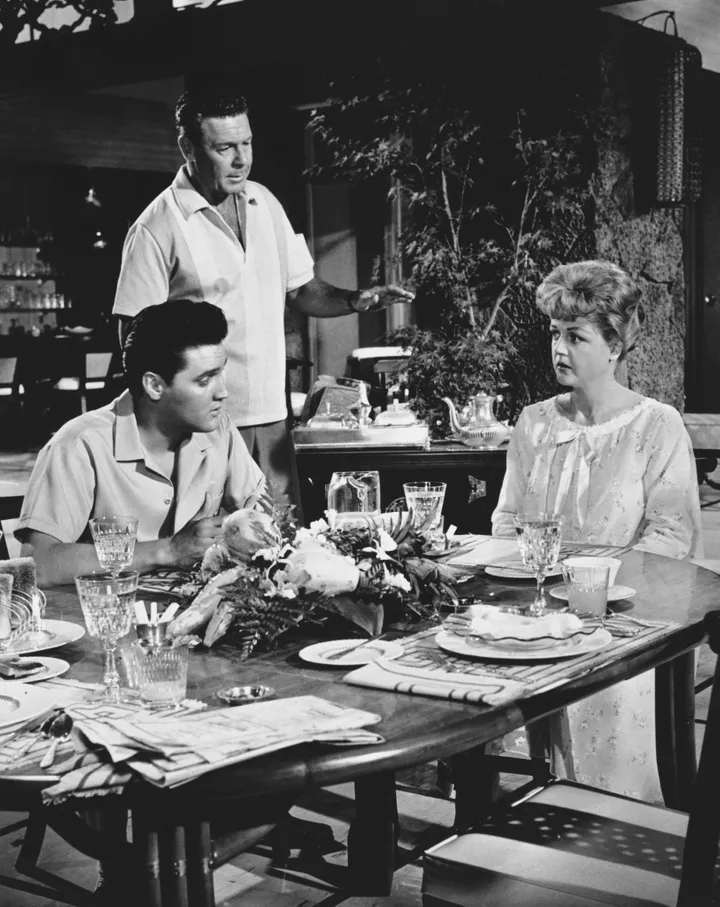
Lansbury discovered her calling on stage after being consistently cast in supporting roles in major motion pictures. After appearing in the critically panned 1964 Stephen Sondheim musical “Anyone Can Whistle,” Lansbury landed the lead in “Mame,” portraying a bohemian who introduces her 10-year-old nephew to her liberated lifestyle. Her performance earned her the first of her five Tony Awards. (Frank Rich of The New York Times wrote that when Lansbury resurrected the role in 1983, “One feels a rush when she enters, a vision in gold from her toes to her raised bugle.”) Despite Lansbury’s disappointment that Lucille Ball, who was seen as a more commercially successful star, received the role of Mame in the 1974 film adaptation, Lansbury’s career flourished after the stage production ended in 1968.
Lansbury played the lead in London and New York productions of “Gypsy” throughout the 1970s. She portrayed Gertrude in “Hamlet,” Anna Leonowens in “The King and I,” and Mrs. Nellie Lovett in the first “Sweeney Todd: The Demon Barber of Fleet Street.” She also landed her most prominent film role as a witch in the now-classic Disney fantasy “Bedknobs and Broomsticks” from 1971.
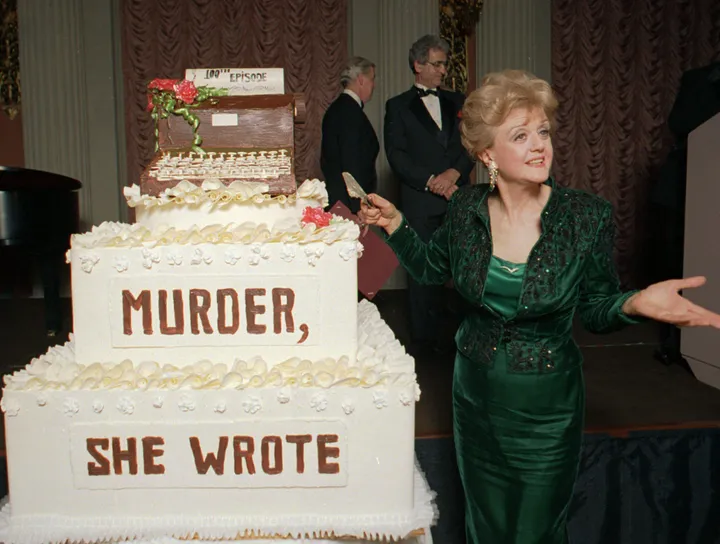
But it wasn’t until the 1980s, when she was getting close to 60, that she landed the role that cemented her reputation and stuffed her bank account. According to reports, Lansbury accepted the lead role in CBS’s “Murder, She Wrote” after Jean Stapleton and Doris Day reportedly declined. She portrayed Jessica Fletcher, a widowed mystery writer who investigated crimes in her spare time, for 12 seasons. The series debuted in 1984, and Lansbury has claimed that it was the closest she ever got to “universal fame.” The character of Jessica also served as a turning point for female characters on television because Lansbury insisted that the character remain single in order to symbolize female independence. Jessica was an older, independent career woman.
“Jessica Fletcher didn’t want to begin a whole new cycle of life with somebody new, because she had a very complete life as an authoress,” Lansbury said in 2012. “She had success and the comfort and coziness of her home, her pursuits, her friends.”
The actor received 10 Emmy nominations for the program, but she never took home the prize. During her time on “Murder,” Lansbury didn’t play any stage roles, but she did appear in more movies and TV shows. She is best known for providing the voice of the nurturing Mrs. Potts in the 1991 film “Beauty and the Beast.”
Lansbury married twice during all of this. She eloped at the age of 19 with actor Richard Cromwell, 35, who had roles in the movies “Jezebel” and “Young Mr. Lincoln.” They were only married for nine months, and Lansbury later learned he was gay, but they remained friendly until his passing in 1960. Her second marriage, to producer Peter Shaw, started in 1949 and lasted for 54 years until he passed away in 2003.
In 1970, Shaw and Lansbury moved from California and started dividing their time between New York City and Ireland. Anthony Peter Shaw (born in 1952) and Deirdre Angela Shaw were their two offspring (born in 1953).
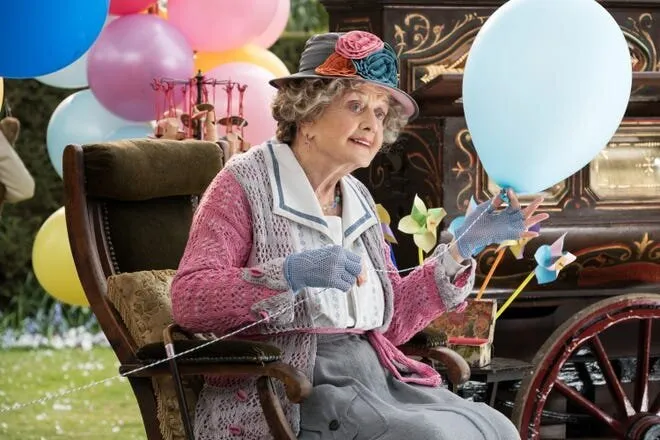
Lansbury joined the Democratic Party in the United States and the Labour Party in the United Kingdom to follow in the political footsteps of her late father.
“I think the exciting thing about acting is I leave myself at home, and the person that arrives on the set is hopefully akin to the character that I’m going to play,” Lansbury said in 2018. “And that gives me the chance to indulge myself in the thing I love doing most, which is acting. Acting as somebody else, not me, because I’m dull as dishwater.”
Although Lansbury’s output had decreased in more recent years, she still made appearances in the films “Nanny McPhee” (2005), “Mr. Popper’s Penguins” (2011), “Little Women” (2017), and “Mary Poppins Returns” (2018). She made her stage comeback with Terrence McNally’s play “Deuce,” which earned her a second Tony nomination, as well as the 2009 revival of Stephen Sondheim’s “A Little Night Music” and a brief 2013 run as the lead in “Driving Miss Daisy.” For her role in the 2004 television film “The Blackwater Lightship” and her guest appearances on “Law & Order: Special Victims Unit” and “Law & Order: Trial By Jury,” Lansbury received three additional Emmy nominations. She received an honorary Oscar in 2014.
“I think stamina is built into my constitution,” she said in 2012.
Her contributions to “Murder, She Wrote” continue today: An excerpt from the program is included in the popular 2019 murder-mystery comedy “Knives Out,” and Lansbury is thanked in the film’s closing credits.
Despite not being present to accept the honor at New York’s Radio City Music Hall, Lansbury was given a special Tony Award in June for lifetime achievement. Her most recent performance on Broadway took place in the 2012 revival of “The Best Man,” a play by Gore Vidal.
Even though MGM initially didn’t give her the opportunity to shine, Lansbury would come to be known for her versatility. She adopted the personas of roving bohemians, cunning con artists, romantic artists, and sweet achievers through her work. In 2010, the British newspaper The Independent speculated that Lansbury might be the “most successful actress ever” in Britain.
“I think of myself as a journeyman actress,” she said in 2004. “I will attempt almost anything that I think that I can bring off.”


